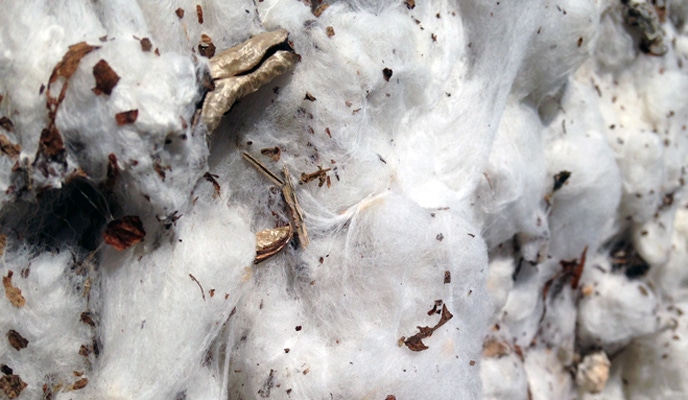
Conaway: Farm bill gives Vilsack OK for cottonseed designation
House Agriculture Committee Chairman K. Michael Conaway says Congress gave the secretary of agriculture specific authority to designate any oilseed – including cottonseed – as “an other oilseed” for farm program purposes.

House Agriculture Committee Chairman K. Michael Conaway says Congress gave the secretary of agriculture specific authority to designate any oilseed – including cottonseed – as “an other oilseed” for farm program purposes.
The Texas Republican cited the farm bill language in a five-page letter responding to Agriculture Secretary Tom Vilsack’s letter outlining his conclusion he lacks legal authority to designate cottonseed an other oilseed for Agricultural Risk Coverage and Price Loss Coverage.
“Although your letter identifies several possible obstacles to the designation of cottonseed as an oilseed, I respectfully disagree with your conclusion,” said Conaway, whose district includes a portion of the High Plains. “I assure you that your authority to designate cottonseed as an other oilseed stands on firm legal ground.”
Cotton industry leaders have been seeking such a designation since a grower in the Southeast originated the idea of making cottonseed an other oilseed so cotton producers could be eligible for oilseed payments that might be triggered by prices falling below the reference price for soybeans and other oilseeds.
Each of the last several farm bills have contained the language that defines an oilseed as “a crop of sunflower seed, rapeseed, canola, safflower, flaxseed, mustard seed, crambe, sesame seed or any other oilseed designated by the secretary.”
Legal authority lacking
On Wednesday (Feb. 3), Vilsack told reporters he had decided he did not have the legal authority to make such a declaration. He also said Congress would have to find offsets of up to $1 billion to find the declaration for 10 years.
“I am deeply disappointed in the Secretary’s decision because it jeopardizes the livelihoods of thousands of hard working farm families and the countless communities that depend on them,” said Conaway in a statement that accompanied the release of his letter to Vilsack.
“These farm families and communities are left alone to face the predatory foreign trade practices of China, India, and other countries that are, according to the analysis of our own government, wreaking havoc on global cotton markets through heavy subsidies, tariffs, and non-tariff trade barriers.”
The “dire conditions” that have settled over the U.S. Cotton Belt, as a result, have left him with little choice but to continue to press for a meaningful response of the kind that have been have been taken to address emergencies impacting producers of other commodities in the past.
In his letter of Feb. 3 to the 100 members of Congress who had asked him to make the designation, Vilsack cited the removal of cotton as a program crop from the 2014 farm bill as the primary reason he could not grant their request.
Removed cotton from payments
“After close examination of applicable law, we have determined that such a designation is not authorized under the Agricultural Act of 2014 because it expressly removed eligibility of cotton for such payments, as cotton is no longer listed as a 'covered commodity' under section 1111," Vilsack said.
Conaway told Vilsack there is no evidence Congress intended to do anything other than remove upland cotton lint from the definition of a covered commodity, primarily because of the ruling against the U.S. cotton program in the Brazil case in the WTO.
“As a practical matter, there is a very significant difference in the denial of upland cotton from eligibility under ARC and PLC and the allowance of cottonseed under the same,” Conaway said. “Had upland cotton been included under Agricultural Risk Coverage and Price Loss Coverage under the same general terms and conditions of other producers, upland cotton producers would have had a significant safety net in place.”
Vilsack has used the authority granted by Congress to help other farm sectors in the past, including providing relief to dairy farmers within a year of the 2008 farm bill’s passage, Conaway noted.
About the Author(s)
You May Also Like





